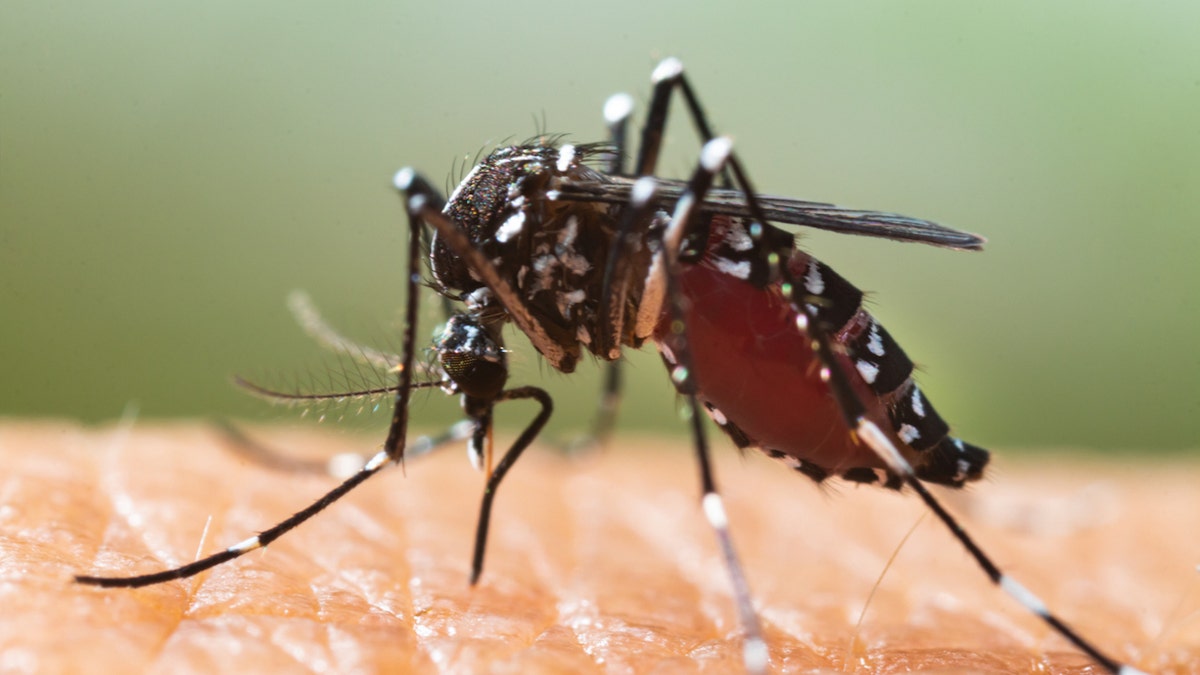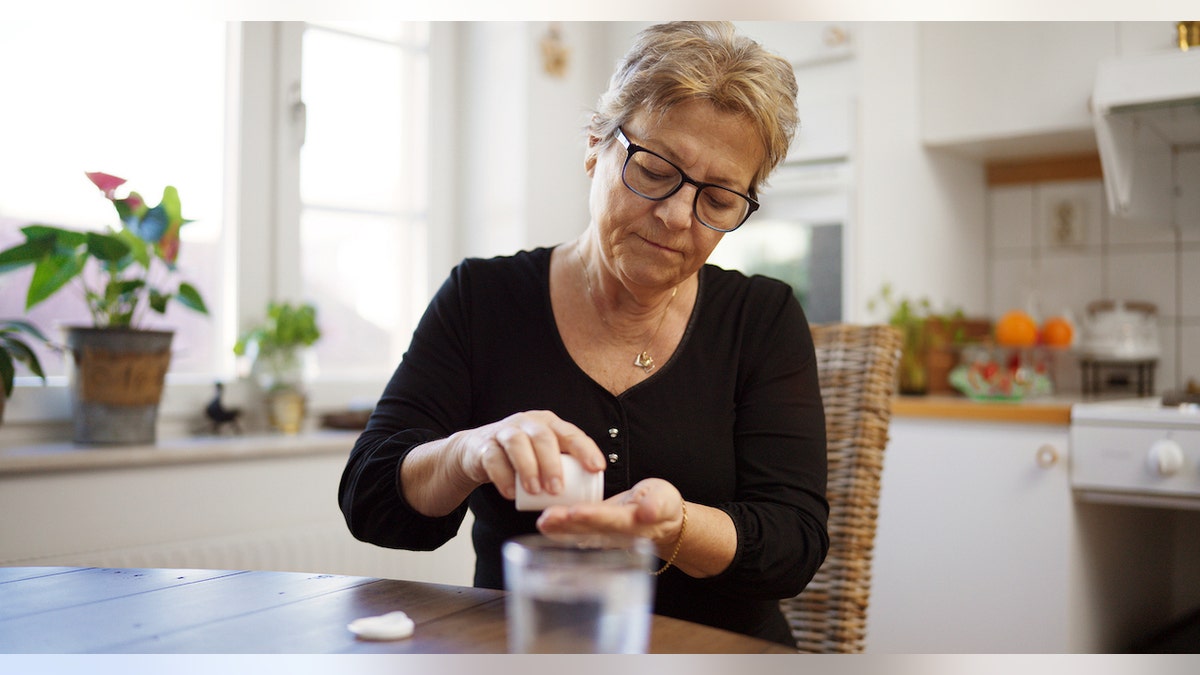Health
Spike in teen depression aligns with rise of social media, new poll suggests: ‘It’s not going anywhere’

“I can’t do anything right.”
“I do not enjoy life.”
“My life is not useful.”
The share of teens who agree with these phrases has doubled over the past decade, according to an annual poll conducted by the University of Michigan — and one expert asserts that the increase in depressive symptoms is tied to the rise of social media.
SURGEON GENERAL RELEASES ADVISORY CALLING FOR IMPROVED SOCIAL CONNECTION
In her book, “Generations: The Real Differences Between Gen Z, Millennials, Gen X, Boomers and Silents — and What They Mean for America’s Future,” Dr. Jean Twenge, a psychologist and a professor at San Diego State University, highlighted the poll’s results as a means of linking the spike in teen depression to the increase in social media use.
The share of teens who agree with these phrases has doubled over the past decade, according to an annual poll conducted by the University of Michigan. (iStock)
Since 1991, the University of Michigan has polled 50,000 students in 8th, 10th and 12th grades about their level of agreement with those three questions.
After 2012, the number of students expressing agreement with those sentiments started to climb.
In particular, the number of students who agreed with the phrase “I do not enjoy my life” has more than doubled in that decade.
“Frequent and prolonged social media use is associated with elevated risk for psychological distress.”
Ryan Sultán, M.D., an adult and pediatric mental health physician at the Columbia University College of Physicians and Surgeons in New York City, agreed that social media presents mental health risks — but he pointed out that Twenge is demonstrating correlation rather than causation.
SURGEON GENERAL’S ADVISORY ON SOCIAL MEDIA AND YOUTH MENTAL HEALTH COMES AMID ‘REAL-TIME EXPERIMENT’
Sultán was not involved in the poll.
“I think it’s a fair conclusion that one might make from looking at this data,” he told Fox News Digital in a phone interview. “However, I think it’s important to acknowledge that this is not a scientifically rigorous, peer-reviewed analysis.”

“Despite the potential benefits of social media for some groups, the prevalent theme is that frequent and prolonged social media use is associated with elevated risk for psychological distress,” an expert said. (iStock)
Dr. Zachary Ginder, a psychological consultant and doctor of clinical psychology at Pine Siskin Consulting, LLC in Riverside, California, was also not involved in the poll but said the correlation between depression and social media use aligns with previous research.
“Despite the potential benefits of social media for some groups, the prevalent theme is that frequent and prolonged social media use is associated with elevated risk for psychological distress, such as depression and anxiety, for children and adolescents,” he told Fox News Digital in an email.
TEEN GIRLS ARE STRUGGLING WITH MENTAL ILLNESS AT RECORD LEVELS, WITH MANY ‘PERSISTENTLY SAD,’ DATA REVEALS
“Unfortunately, this trend appears to be increasing in severity.”
As young people rely more heavily on their screens for their social interactions, Ginder noted that there are far fewer opportunities for real-life, person-to-person relationships.

As young people rely more heavily on their screens for their social interactions, an expert said there are fewer opportunities for real-life, person-to-person relationships. (iStock)
“These apps are designed to support dependency, and a young person’s natural tendency to ‘compare and despair,’” he said. “Prolonged social media use is opening the door for psychological distress for an already vulnerable segment of our population.”
He added, “It’s akin to throwing fuel on a fire.”
Social media is ‘not going anywhere’
While Sultán agreed that social media poses serious risks for kids, he said the real problem is that it’s undermining the protective factors that help to prevent depression, such as fostering close relationships, spending time outdoors and participating in physical activity.
Kids also need to have stability at home to boost their mental health, said Ginder.
“It’s a system that was designed to be addictive.”
Proper nutrition, opportunities for positive social interaction and quality sleep routines are also important, he said.
“Ultimately, social media is not going anywhere,” Sultán noted. “I don’t think it’s realistic to make it go away, but we should push for limitations on it for kids and teens.”
TEEN GIRLS SPEND MORE TIME ON ‘SENSITIVE’ SOCIAL MEDIA CONTENT THAT CAN HARM MENTAL HEALTH, REPORT SAYS
Part of the reason social media has become so problematic for kids is that they are less able to regulate themselves, Sultán explained.
“It’s a system that was designed to be addictive, to get them to keep using it,” he said. “And kids’ brains are not as developed as adult brains.”
At a minimum, Sultán recommended that parents set guidelines for kids to stop using devices at a certain time each evening.

Experts recommend that parents set guidelines for kids to stop using devices at a certain time each evening. (iStock)
“I think there needs to be a larger discussion and a societal expectation,” he said. “We need to think about how to set expectations for reasonable social media use and to enforce those in a larger way.”
Ginder agreed that children and teens often lack the ability to self-regulate their social media use and manage their impulses — especially as they are experiencing peer pressure and forming their identities.
“In addition, mental health concerns often begin to emerge between the ages of 14 and 18,” he told Fox News Digital.
CLICK HERE TO SIGN UP FOR OUR HEALTH NEWSLETTER
“All of this creates a very difficult circumstance for teens to navigate without support.”
In May, Surgeon General Dr. Vivek Murthy released an advisory titled “Social Media and Youth Mental Health,” warning about the potentially negative impact of social media on children and teens.
The 25-page advisory outlines the potential risks, including depression, anxiety, disordered eating, sleep problems, attention disorders, low self-esteem, feelings of exclusion and suicidal ideations, among others.

Health
Paleo and Atkins Diets: Low-Carb for Different Reasons | Woman's World

Sign Up
Create a free account to access exclusive content, play games, solve puzzles, test your pop-culture knowledge and receive special offers.
Already have an account? Login
Forgot your password?
Get back to the Sign In
Use left and right arrow keys to navigate between menu items.
Use escape to exit the menu.
Health
7 important health stories this week you simply can't miss

Every day of the week, Fox News Digital publishes a range of health and wellness pieces to keep you up-to-date on medical research, new medications, mental health trends, success stories and more.
In case you missed them, here are a few of the biggest health stories from the past week.
As always, you can see a full list of recent health pieces at http://www.foxnews/health.
CLICK HERE TO SIGN UP FOR OUR HEALTH NEWSLETTER
1. FDA tells COVID vaccine makers to update their fall shots
The U.S. Food and Drug Administration recommended that COVID vaccine manufacturers update their formulas for fall doses, in an attempt to target the KP.2 strain of the JN.1 variant.
Dr. Marc Siegel shared insights on the risks as this variant grows more prominent. Click here to get the story.
“It makes sense to target the KP.2 strain because it is becoming the predominant strain — it is surging in California and will spread across the country,” Siegel told Fox News Digital. (iStock)
2. Expert offers 7 tips to soothe sunburned skin
If not treated properly, sunburn can lead to severe skin damage and increase the risk of skin cancer, experts warn.
Angela Rosoff, a San Francisco-based wellness and beauty expert, shared some proven remedies to treat sun-damaged skin. Click here to get the story.

More than one out of every three adults experienced a sunburn last year, according to a survey by the American Academy of Dermatology. (iStock)
3. Tiger mosquitoes blamed for spread of dengue fever
As dengue fever continues to spread throughout Europe, experts are naming an invasive mosquito species as the culprit.
CANCER NEARLY TOOK HIS LEG, BUT NEW JERSEY FATHER OF 6 WALKS AGAIN: ‘I SHOULDN’T BE HERE’
Infectious diseases experts weighed in on the level of risk and share prevention tips. Click here to get the story.

Tiger mosquitoes — the species Aedes albopictus — have spread into 13 EU countries, according to an alert from the European Centre for Disease Prevention and Control. (iStock)
4. Certain exercises could reverse Alzheimer’s, expert says
In her new book, “Reversing Alzheimer’s,” Dr. Heather Sandison, a renowned expert in dementia care, offered specific recommendations for the types of exercise that can benefit patients living with the disease.
“Exercise benefits several of the root causes of neurological disease,” she wrote. Click here to get the story.

Sunburn remedies, new COVID vaccines, anti-Alzheimer’s exercises and more important stories are covered here. (iStock)
5. Experts bust sunscreen myths
Some claims on social media about sun safety have led to a major misconception that sunscreen could cause skin cancer.
Dermatologists debunk these potentially dangerous myths. Click here to get the story.

Thirty-two percent of Americans believe that a tan makes people look better and healthier, according to the Orlando Health Cancer Institute study. (iStock)
6. New Alzheimer’s drug gets thumbs-up from FDA advisory committee
Donanemab, designed to treat mild cognitive impairment and other symptoms of early Alzheimer’s disease, was endorsed by a U.S. Food and Drug Administration advisory panel.
Here’s what that could mean for patients. Click here to get the story.

Eli Lilly officials presented clinical trial results showing that the drug, donanemab, slowed cognitive and functional decline for people with mild cognitive impairment due to early stages of Alzheimer’s. (iStock)
7. FDA panel rejects MDMA-assisted therapies for PTSD
Many veterans’ hopes were dashed when an FDA advisory committee voted against the overall benefits of MDMA when used to treat PTSD.
Advocates and doctors discussed what this means for the future of psychedelic treatments. Click here to get the story.

“When I heard the verdict, all I could think about was the hopes of those veterans being dashed … and not having a solution for them,” one advocate said. (iStock)
Health
Better Than Ozempic? Doctors Say These Medications Are Better for Weight Loss Than the Popular Semaglutide

Sign Up
Create a free account to access exclusive content, play games, solve puzzles, test your pop-culture knowledge and receive special offers.
Already have an account? Login
Forgot your password?
Get back to the Sign In
Use left and right arrow keys to navigate between menu items.
Use escape to exit the menu.
-

 News1 week ago
News1 week agoIsrael used a U.S.-made bomb in a deadly U.N. school strike in Gaza
-

 World1 week ago
World1 week agoFrance to provide Ukraine with its Mirage combat aircraft
-

 News1 week ago
News1 week agoNonprofit CFO Accused of 'Simply Astonishing' Fraud
-

 World1 week ago
World1 week agoRussia-Ukraine war: List of key events, day 833
-

 Politics1 week ago
Politics1 week agoGeorge Clooney called White House to complain about Biden’s criticism of ICC and defend wife’s work: report
-

 Politics1 week ago
Politics1 week agoNewson, Dem leaders try to negotiate Prop 47 reform off California ballots, as GOP wants to let voters decide
-

 World1 week ago
World1 week ago‘Bloody policies’: Bodies of 11 refugees and migrants recovered off Libya
-

 Politics1 week ago
Politics1 week agoEmbattled Biden border order loaded with loopholes 'to drive a truck through': critics















